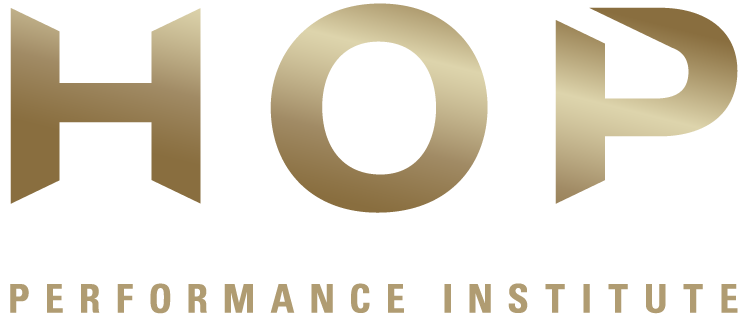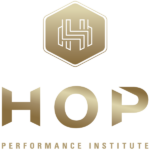Aaron’s Profile
linkedin.com/in/aaron-halliday-phd-991b26100
Websites
- com/ (Company Website)
- com/competitiveadvantageinsights/ (Instagram)
- com/A_J_Halliday (Twitter)
Phone
- +1 416-557-5511(Mobile)
02:02 Founders story
05:07 PhD research in mindfulness and resiliency and how that plays out in an organizational setting.
05:45 I decided to pursue a resiliency study looking at the opposite side of things from adversity so it’s like how people you know take resilience to involves how people are impacted by this negative experience. They take a hit and then they bounce back. So it’s a two-part process.
06:17 basically like a suit of armor
07:18 Research on Mindfulness is just this other thing or it’s being very attentive and aware at the present moment and but in a way that is non-judgmental and very accepting of things and so you can be able to notice emotions come and go and you’re not judgmental – good motions or bad emotions. That concept of good and bad emotions is kind of removed from the equation because that’s not really productive and you know everything’s temporary and it’s that whole belief that you know what’s going to come is also going to go and it’s easier to deal with when you’re kind of in a somewhat detached state.
09:58 What theoretical models are driving the productive outcomes of mindfulness and how can they be integrated into a convenient & accurate model of mindful resilience. (Aaron’s PhD Thesis research)
10:14 Dr. Shapiro came up with this great model and it basically said that the more mindful you are, the more likely you are to reap or receive events or your situations in new lights. So the more that you’re likely to be able to self regulate your emotions, the more flexible you’re likely to be, the more likely that you’re going to be more tolerant of distressing sort of phenomena, and the more likely that you are to have a more concrete clarity in the values that you hold of towards things.
10:56 I thought all of these things are beneficial with regards to all sorts and kinds of states like having less depression, having less anxiety & stress, better decision-making, and well-being. It will bring clarity, especially with the values which right you can imagine how that would impact organizations.
13:18 In terms of the mindfulness and resiliency research that came out of his PhD research, how Aaron has been able to transition that research into working now with organizations through trust incorporated. – to increase obviously the level of resiliency and mindfulness and outcomes that organizations seek.
13:50 This point has become kind of a hot topic for a while in academia as well as in practice. Part of the reason for that is that it’s actually one of those things to increase somebody’s mindfulness or dispositional influence or trait mindfulness. It’s really rather cost-effective. The resilience model is cost effective just from health savings alone (i.e. co-pay insurance, sick time, etc.)
15:48 In my research, what I noticed was that they were all influenced by each of the variables in this model. So one would believe, just from the research, that people who are of higher mindfulness, they would be more likely to exhibit lower symptoms of these mental illnesses.
16:10 Depression is one of the leading mental illnesses in North America right now. It was projected to be, by 2020 I believe, as the leading cause of work-related disability leave.
16:59 The organization example (i.e. a couple bad leaders and we don’t know what to do with them yet, stress is really high, or we have problems with just processing our employees and treating them well). Mindfulness is good to have on hand but it is not an equivalent to actually resolving problems that are long-standing or systemic.
17:40 Ray Dalio, the famous investor and billionaire, talks about the impact that mindfulness, and mindfulness meditation in particular, has been a critical part of his success and the success of Bridgewater Associates.
18:23 There’s lots of different ways to increase mindfulness beyond the typical ones we hear about, like mindfulness meditation and yoga. It can be as simple as just getting out of the building and outside for a walk in nature and sometimes just being quiet.
18:43 There’s a whole another body of literature that I kind of explored and have dabbled in a little bit with called biophilic responses or human biophilia. It’s basically the idea that when you’re out in nature and you’re around animals or you’re around plants, you actually are better off for most situations. Things like your health & your health value is typically improved. If people are in a hospitalized, if their windows facing a brick wall versus facing a park they notice their health is actually dramatically improved.
19:18 These are all really interesting little things that yield changes with regards to human behavior and the human experience. This is applying to not only work but life broadly speaking.
19:35 Believer and proponent that mindfulness is not for everybody. There are some, very small populations that actually experience mindfulness with a degree of negative side-effects. Some people may experience a degree of what psychologists call dissociation and it’s not necessarily pleasant for them. There’s also some small amount of research that I’ve ran into as well that also says that people who are particularly high in anxiety or very particular forms of anxiety may not benefit as much from mindfulness as they would from other things. So this is about knowing what it’s good for you and what is not as good for you.
20:15 Use an educated mindset to approach various problems. In regards to programs that you’re employing in the office, you definitely don’t want to force anybody to participate in these programs. You want to take the volunteers the people that are actively willing and interested in participating.
20:44 In regards to change and these sorts of programs, evaluate the interventions with regards to how it integrates into our practice or the organization. It depends on the client and their needs. Making sure that that every company takes the mindful step of being aware of their values. Not only the values that they articulate on their website or on their wall but what are their lived values as those demonstrate congruence.
21:30 Different properties that are very specific to mindfulness. More outcomes that are pathways by which they move through and sometimes you can target those pathways directly.
21:57 Role of emotional intelligence today. The World Economic Forum’s Ranking of top ten competencies or skills says emotional intelligence is one of the top 10 skills in the next decade. Leading countries that are working on AI right now basically label soft skills as the skills that are going to be required. For people in countries like India, China, America where these places are doing really well with AI right now but they also realize the critical nature and the critical requirement of these so-called soft skills. They’re not really soft skills – they’re hard skills. Now they’re common skills and probably always were and we were probably sweeping that under the rug for quite a while but they’re definitely not. We gave them this vernacular around soft skills because historically they weren’t measured like some of the other hard skills that were easy to measure and quantify but now there’s a ton of metrics.
23:23 Soft skills have been clearly identified as drivers moving forward. Emotional intelligence and mindfulness are highly correlated.
23:53 Mindfulness also functions through a property of self-regulation so self-regulation of emotions is also another big component of emotional intelligence. JCI global in the UK has over 25 years worth of data and research in the tens of thousands now on both mindfulness and resiliency. Both are now subscales and independent scales they use.
25:38 The idea of personality versus cultural fit in hiring.
26:32 The Big 5 Personality Traits personality is one of those things that is has long been established as a predictor of organizational outcomes, particularly the variable conscientiousness, and to a limited extent some of the other variables like extraversion (introversion). Each of these variables has a bipolar opposite.
27:58 there’s a long-held bias in the research literature that’s kind of recognized that people generally prefer extroverted people even though it may not necessarily be ideal for the role. You don’t want to be using the wrong criteria to hire particular candidates.
28:19 When hiring for cultural fit there’s two bipolar ends you get. You get people who are very vehement and excited and passionate that you should be hiring for cultural fit. You get people taking it with a huge defense with regards to diversity inclusion. Cultural fit is one of those things that if you don’t have it in some regards it can definitely influence your organization and the relationship that you have with your employees. So I always give the good example of this would be like if it’s a cultural value that is fundamental to your organization then you should probably be hiring for it. Understand this as basically like if you’re looking for somebody to date there’s going to be some deal-breakers. When you’re hiring people there should be a couple deal-breakers.
30:04 If you’re doing it right, you’re going to want to make sure that they’re a fit with the same set of values.
32:53 The other thing about values is you always have the opportunity to work on yourself. Think about your values and are they really the ones that you should be adopting. You can you can reflect on things and if you’re in congruence with the particular position. You have to ask yourself: Are you optimally suited for that particular position or are you joining it for the wrong reasons.
34:18 The success habits that have helped Aaron perform at a high level.
- Break big projects down into smaller steps. That’s the really big one I think and when whenever you can do that, because a lot of the times when you break massive projects down into smaller steps you realize that you have components that you have to learn in order to get to the next stage.
- Measures and tracking things as you go forward. It’s a critical part of goal-setting because if you’re not tracking things and measuring things, you don’t really know whether or not you’re making any progress. So definitely find a measurement tool that’s effective, reliable and valid so it is measuring what it’s supposed to be measuring. You can use it as a benchmarking tool.
38:56 We need to be careful around comparisons but the reality is we live in a world where we are measured and we’re compared whether we like it or not, whether it’s positive or not, it just is what it is. It’s good to understand where you came from and how far you’ve made it. So if you don’t achieve your goal, the big hairy audacious goal, that’s okay too. I mean look at how far you came and really reflect concretely on this. Is your goal actually achievable? Maybe you made that goal and you didn’t have as much experience or knowledge of it at the time and maybe you set the bar way too high. Most people have a range by which they can grow. I’m not saying to not strive to achieve the max of that range or to try and even supersede it. However, you just have to be reasonable and whenever you’re setting goals I always frame it in the terms of this cost-benefit analysis. Like if you have this opportunity cost that you give up by pursuing this goal. You want to make sure that you’re prioritizing things and in understanding the return on investment that you get by pursuing this goal relative to any other goal that you could be pursuing

